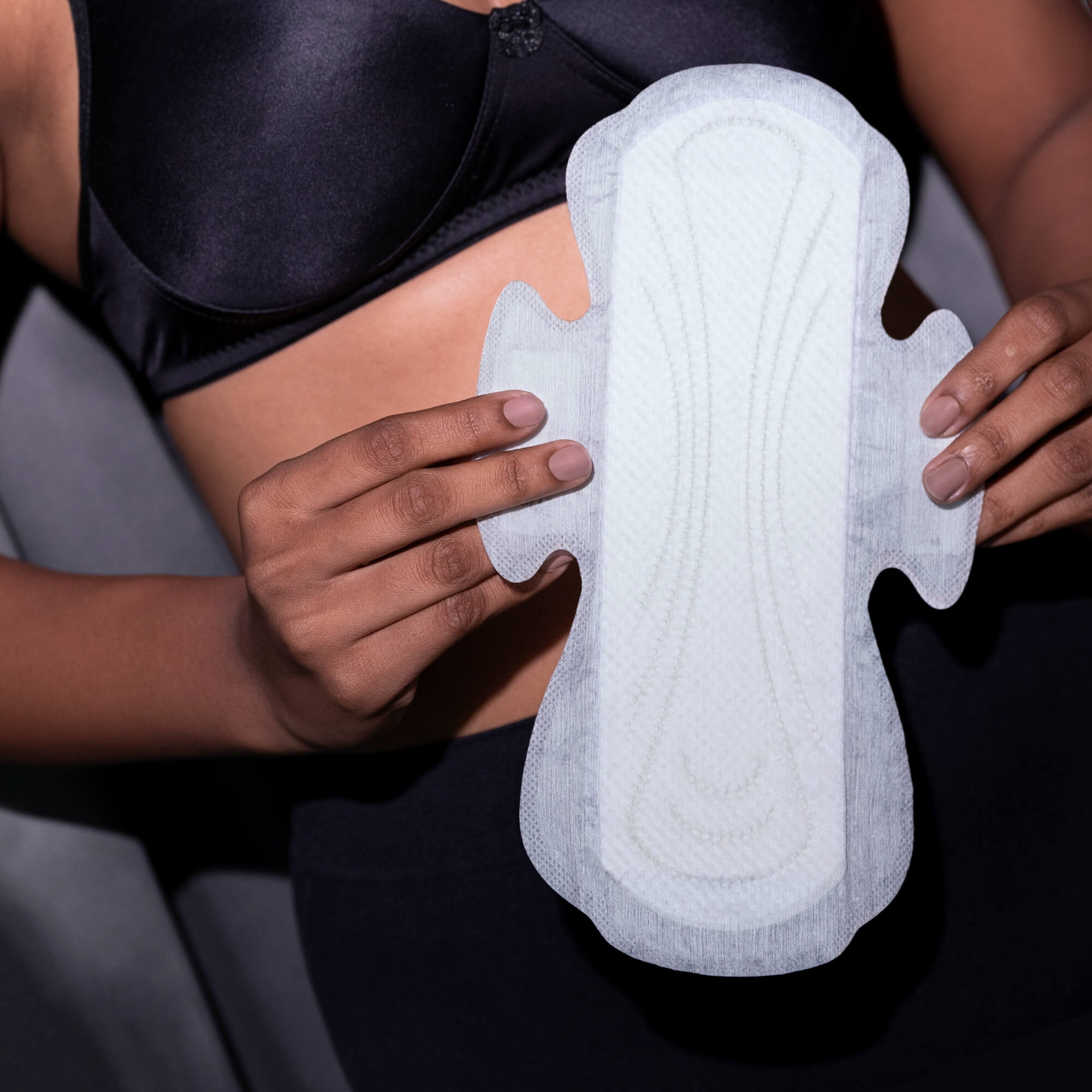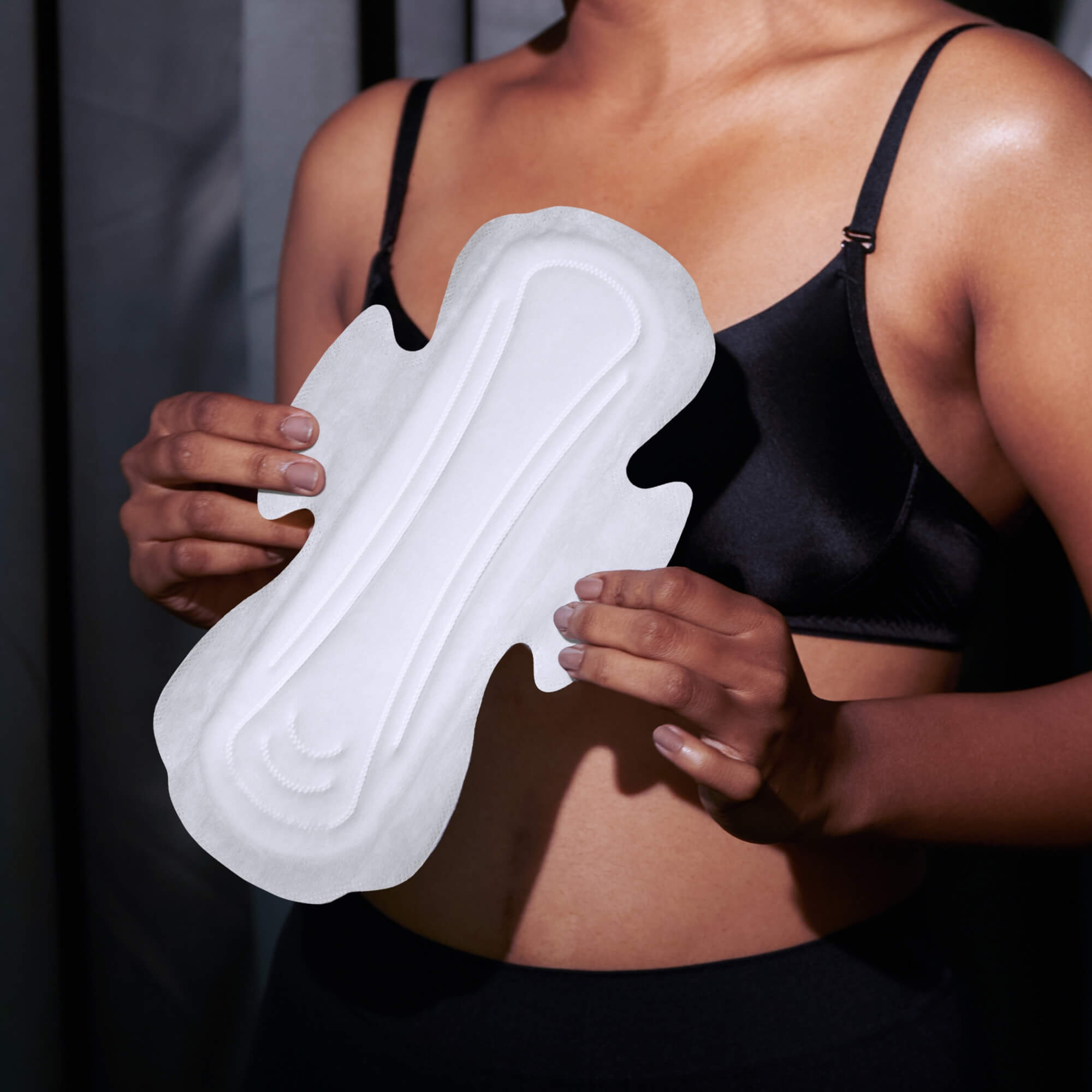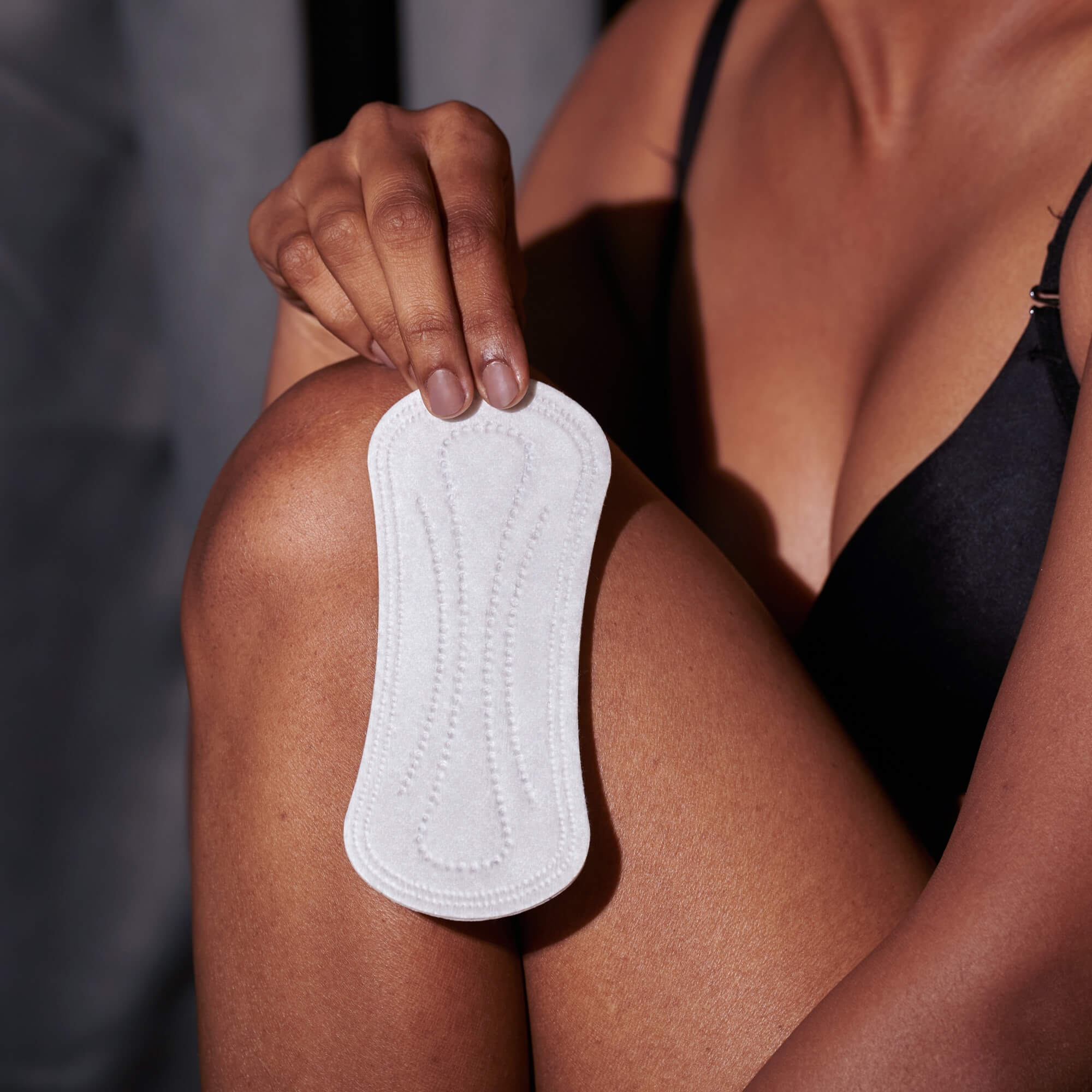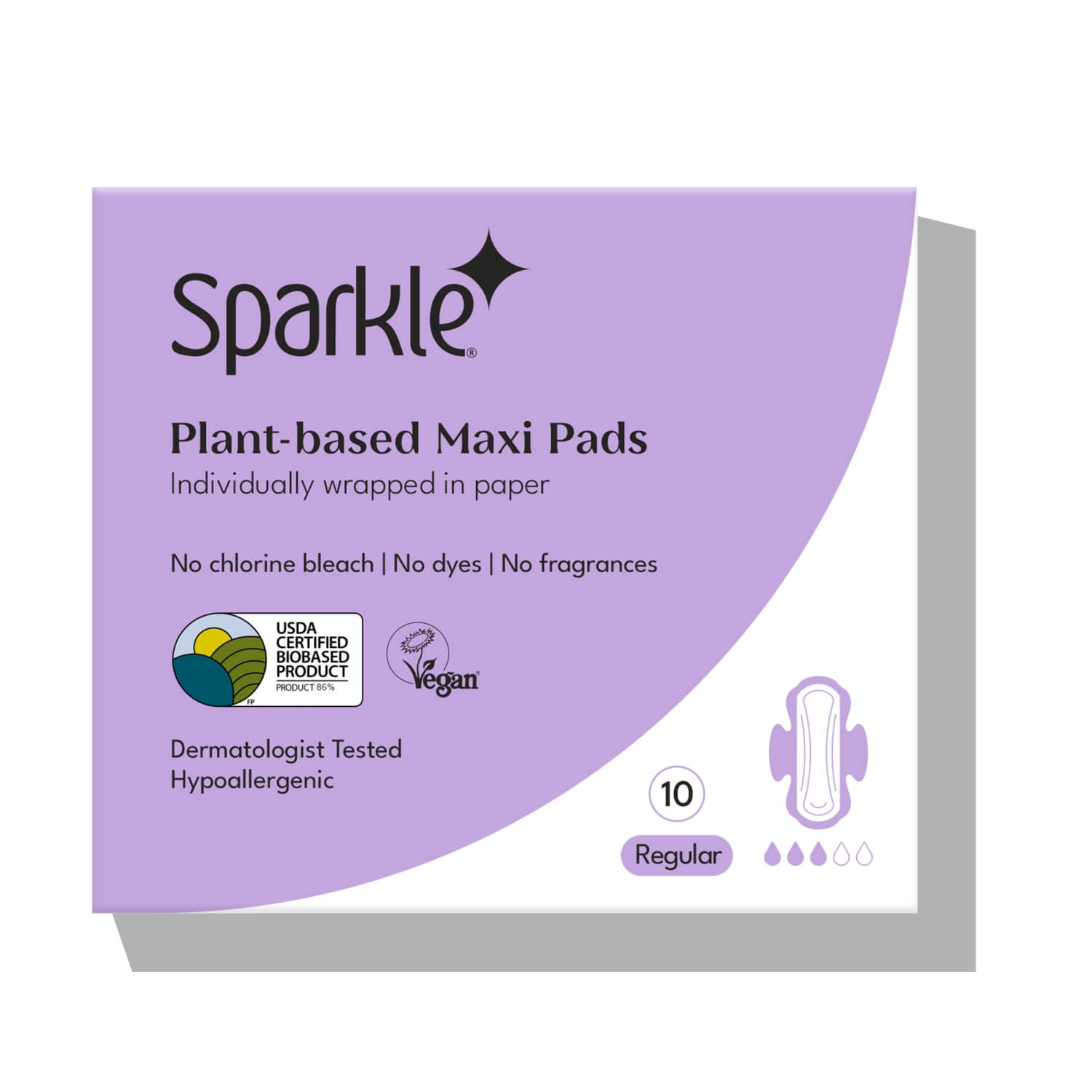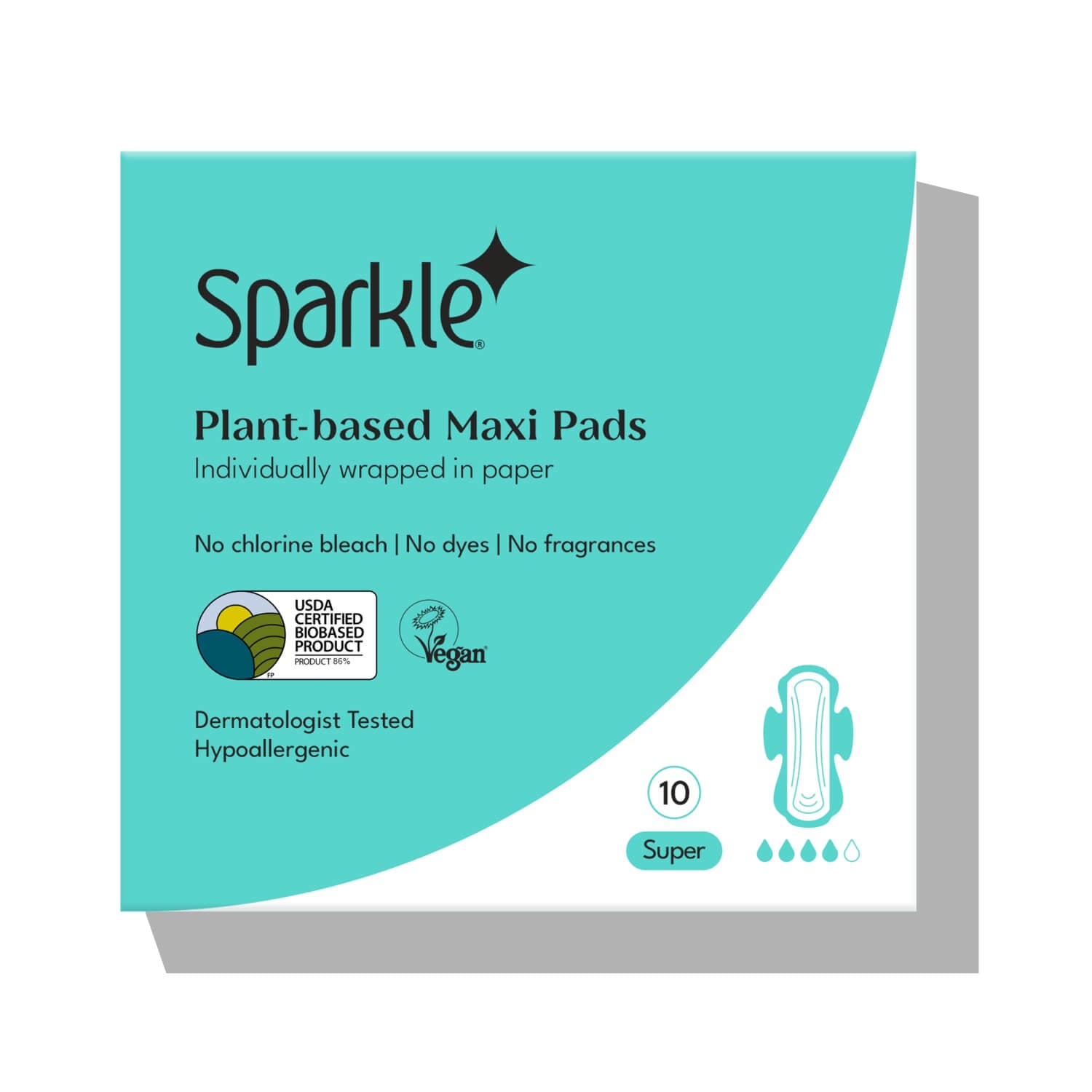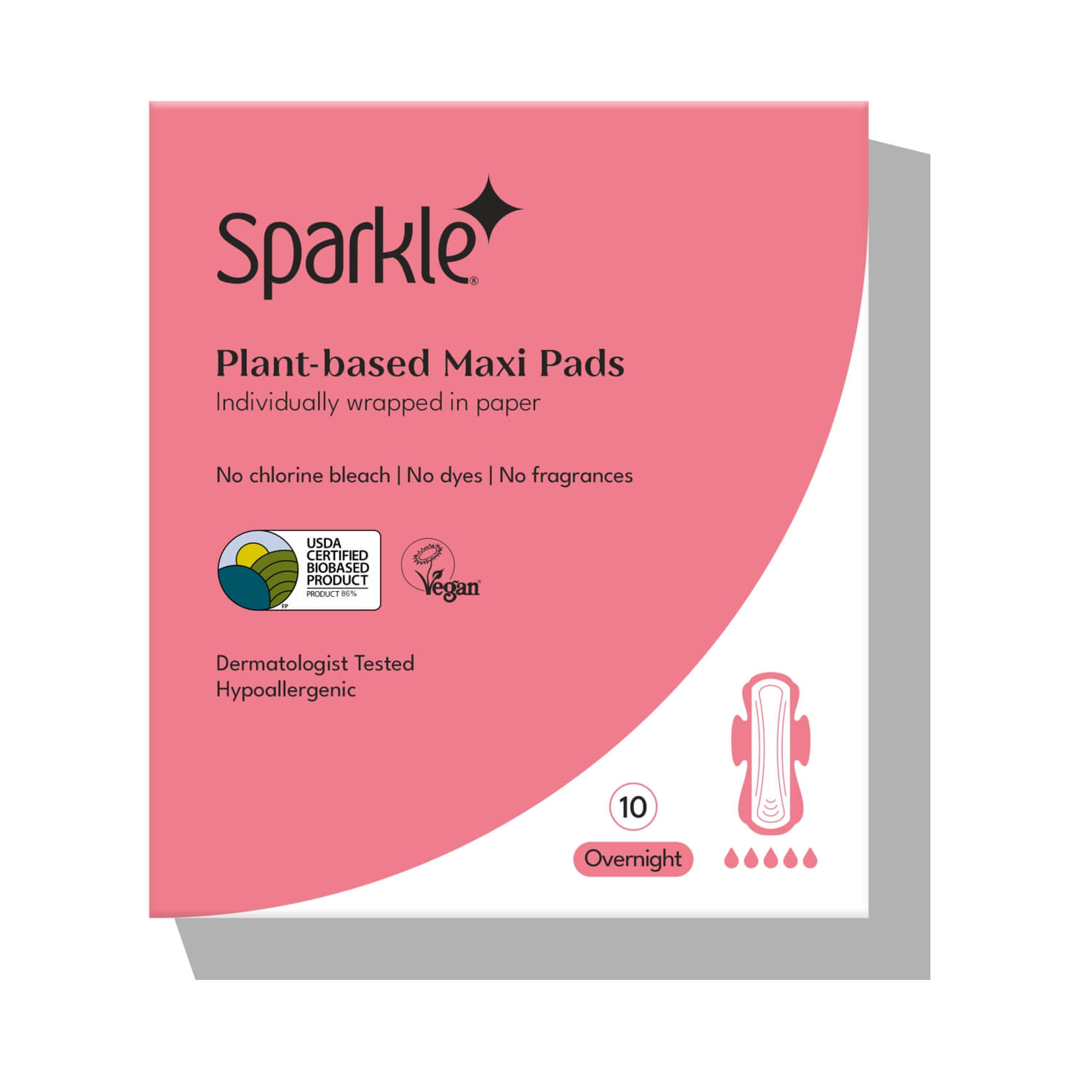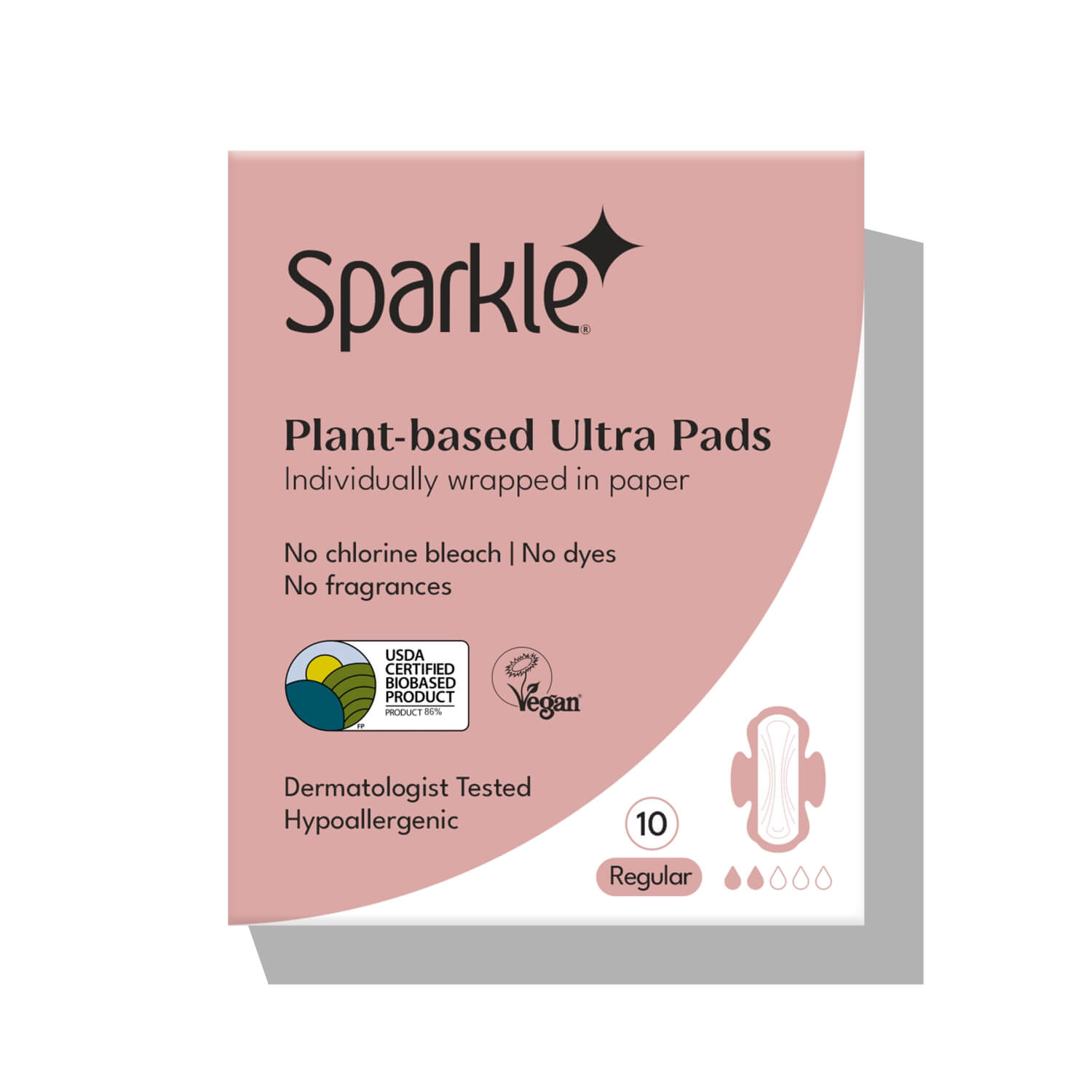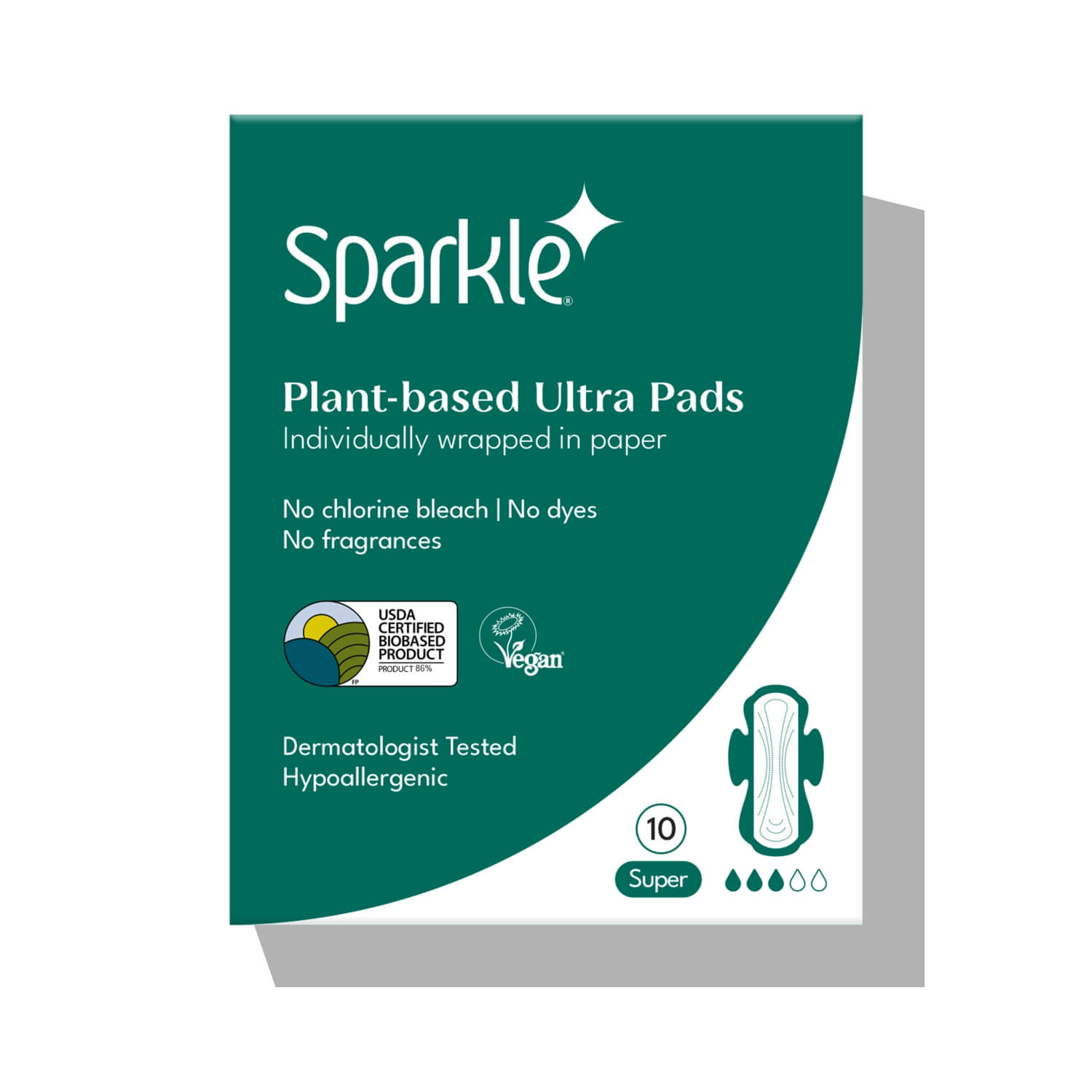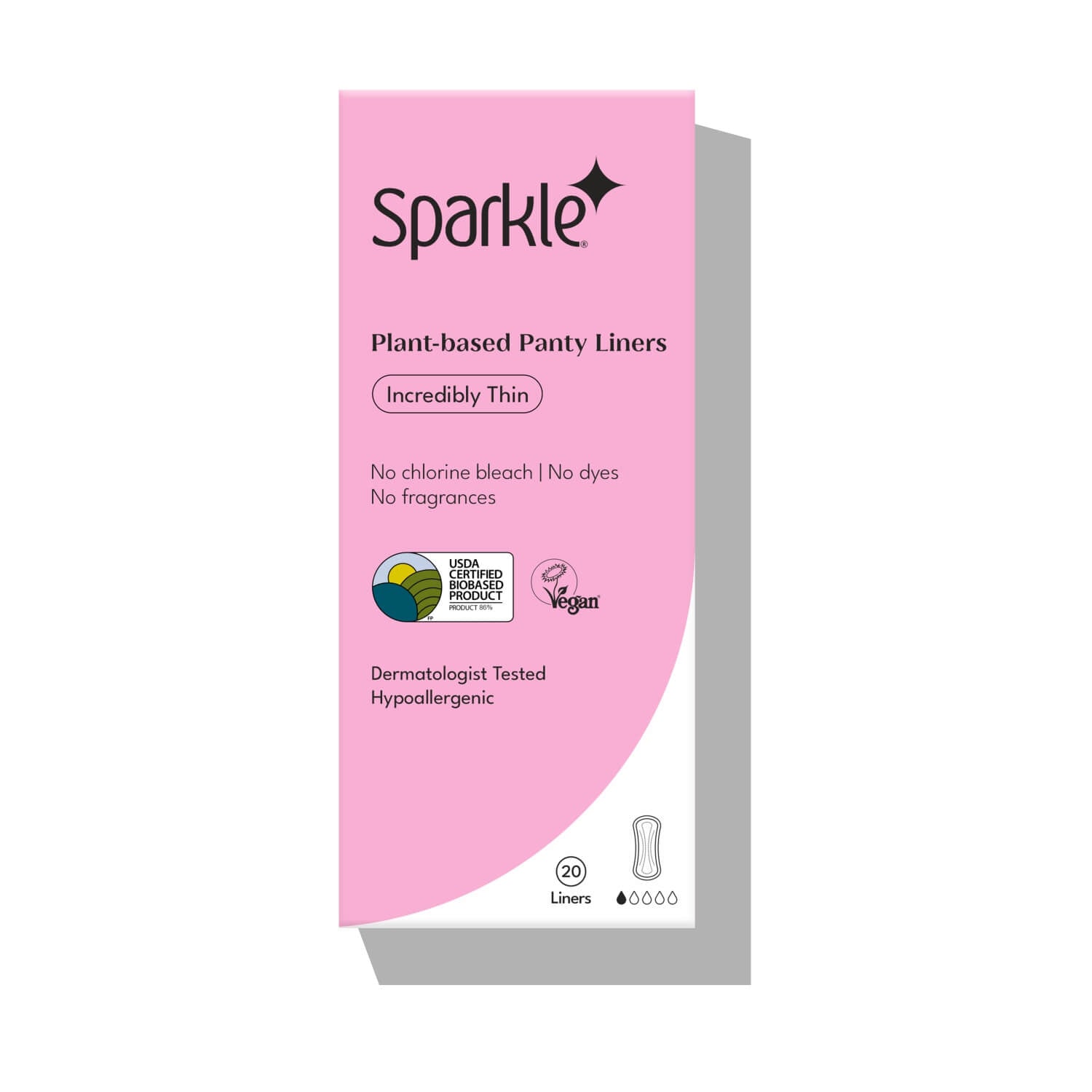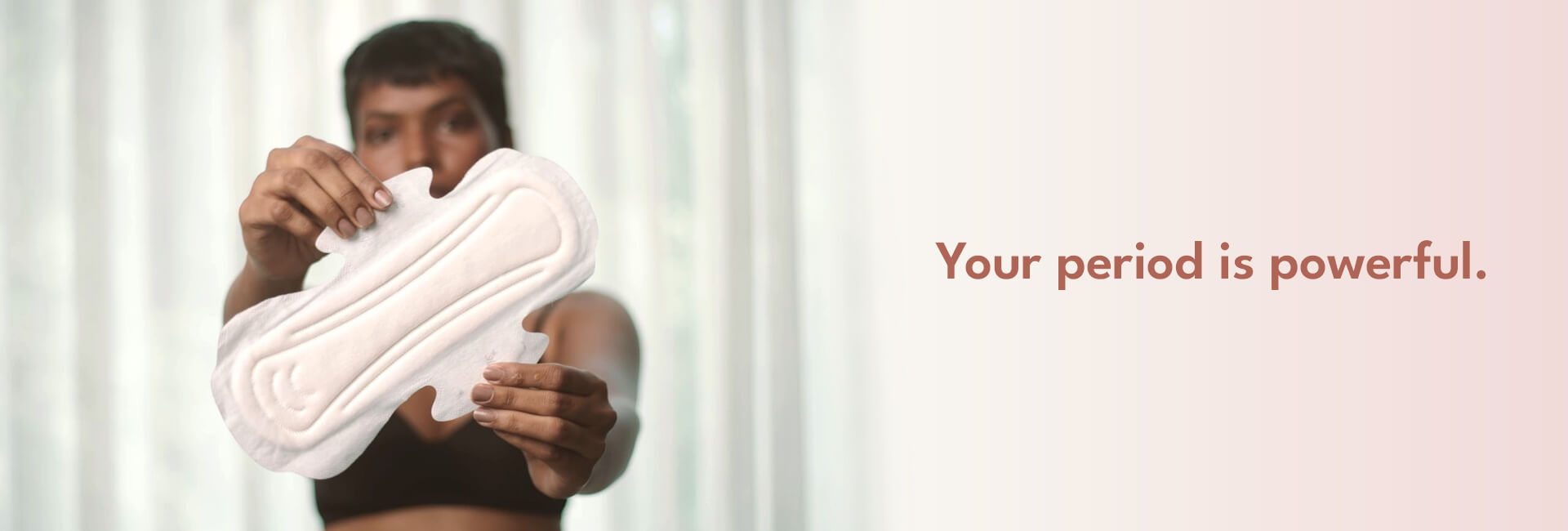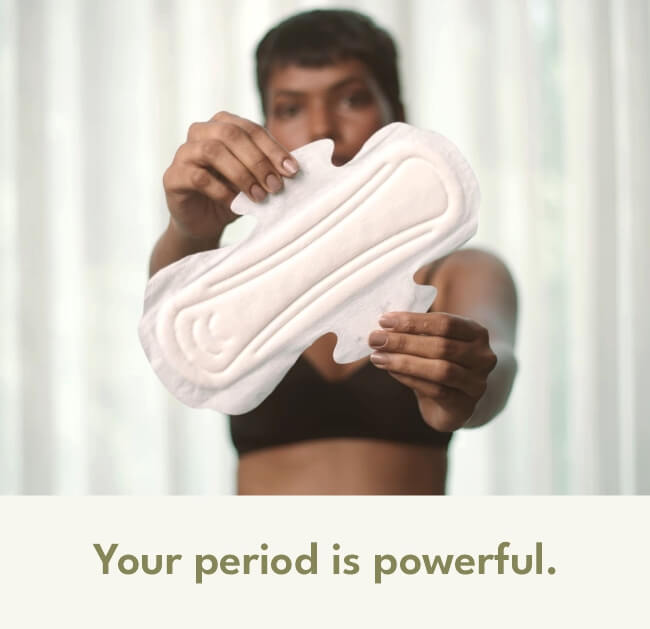Your period is more than a monthly event - it’s a reflection of your body’s balance and well-being. Sparkle is here to help you make cycle care a natural part of your self-care routine, with plant-based period products designed to support you and the planet.
Sparkle’s story, quite fittingly, started with a spark.
Three, to be precise.
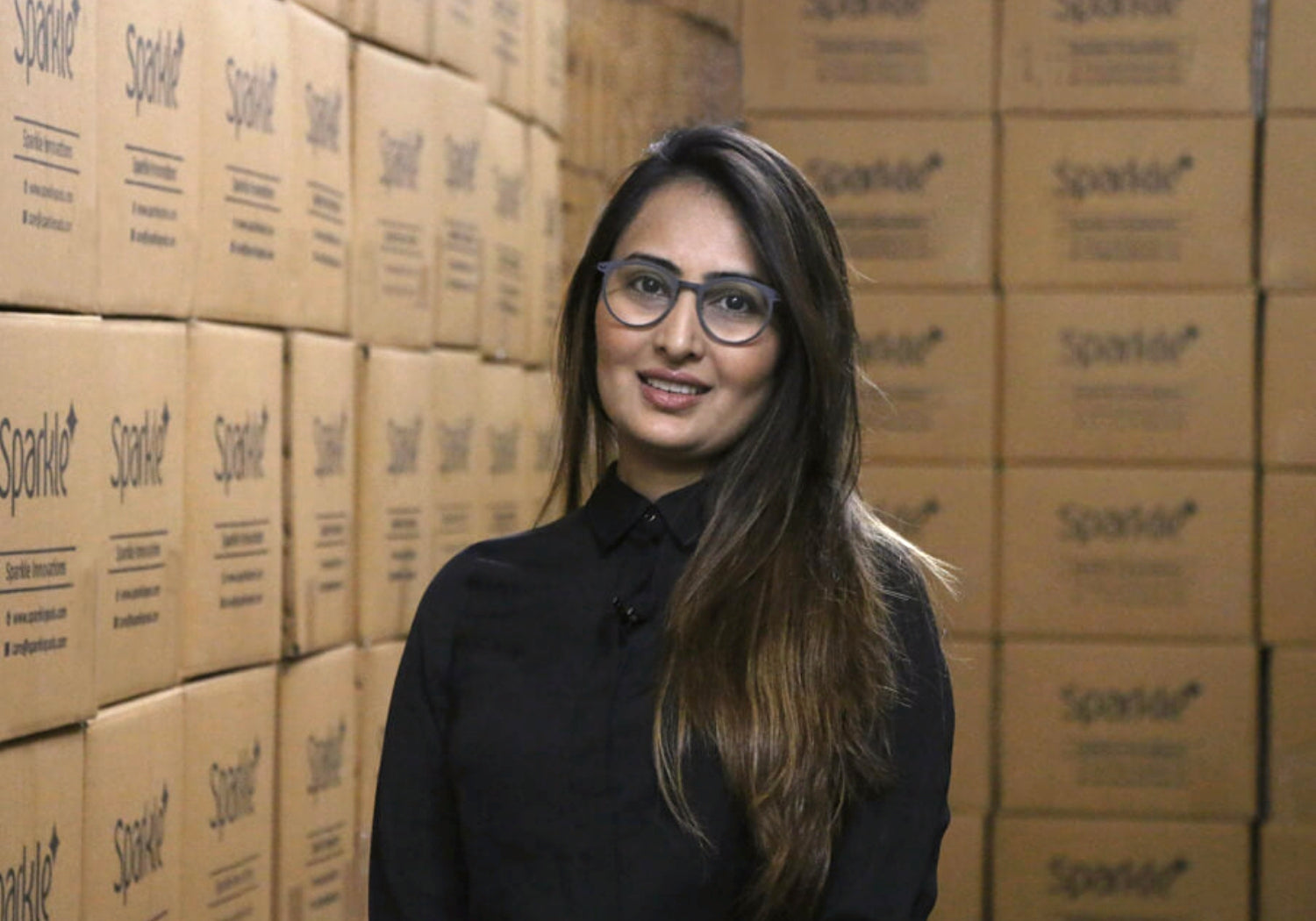
SPARK 1 ✨
When she was growing up, the skin issues and discomfort Hetal faced while using pads from commercial brands, sparked her search for safer and healthier alternatives. In addition, the stigma surrounding periods also got her thinking about the almost shameful image that the society had set for its menstruators.
Hetal’s Story
While growing up in India, I experienced many instances where periods were stigmatized. Even the simple task of buying sanitary napkins from a store consisted of awkwardly whispering the name of the sanitary napkin brand, which was then quickly put in a black bag to hide it from the world. In fact, one of my closest friends is not even allowed to enter her kitchen during her period. Why?
How can we expect young teenagers to freely discuss their problems with menstrual hygiene management when they hesitantly lower their voices at the mere mention of the words, ‘period’ or ‘pad’?
In addition to observing the taboo nature surrounding menstruation, I also noticed another aspect. As a regular user of sanitary pads for over 15+ years, I constantly experienced skin issues and discomfort while using pads from commercial brands. Eventually, I did some research and realized that the harsh chemicals and plastic components present in the pads could have been the main reason behind my constant skin irritation and allergies.
In the meantime, I met Chirag, who was trying to find sustainable ways of utilizing agro-waste generated from his banana plantation.
That’s how the journey of Sparkle began.
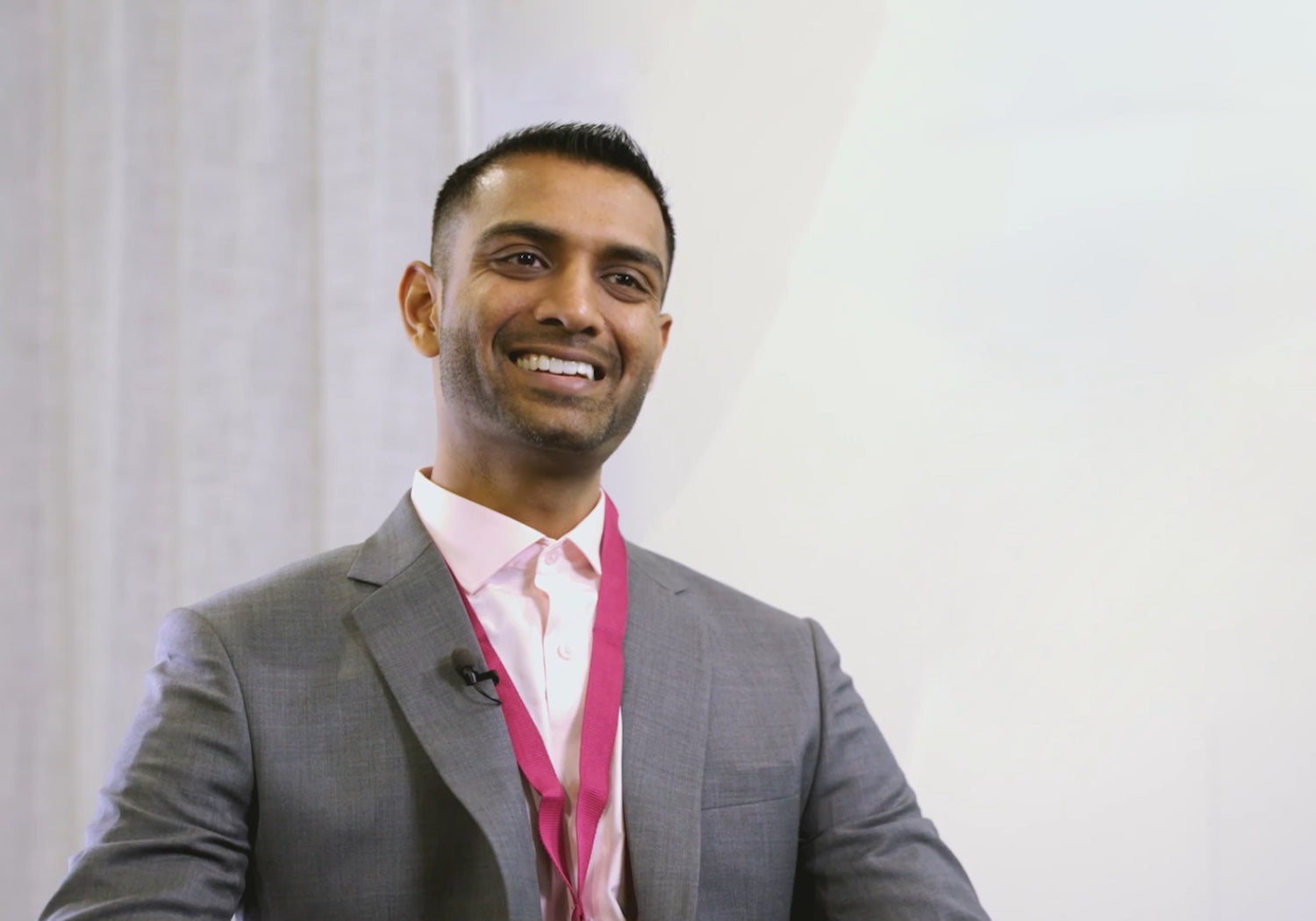
SPARK 2 ✨
On the other hand, working with a number of non-profits across the world and experiencing (first-hand) the lack of sanitary products, as well as its physiological and socio-economic effects on millions of adolescent individuals, was the spark that set Chirag on his course.
Chirag’s Story
To be honest, my knowledge of periods and menstruation was very limited before I started working with different NGOs. I was aware of the biological process which was taught during science classes in school; but other than that, I had no idea about the extent of physiological or socio-economic issues that women faced during their periods.
After completing my Grad Program at UC Berkeley, I took a gap year to pause, unplug, and rediscover myself. I took up volunteering at different NGOs in Kenya, Tanzania, Vietnam, South Africa, India, and Costa Rica.
As I participated in different outreach programs which included medical camps, HIV counseling, teaching, and feeding programs, I witnessed the problems that millions of menstruators faced during their periods. They missed school or work simply because they did not have access to sanitary napkins. In fact, they used unhygienic rags, papers, or ash to manage their periods.
After I met Hetal, both of us decided to purchase conventional sanitary pads that were available in the market and donate those pads to menstruators in need. In the process, we started our NGO, United World Foundation, in 2017. As we searched for long-term and scalable solutions, we realized that simply buying sanitary pads from the market and donating them would only solve the problem temporarily. Furthermore, we also realized that while solving the problem of accessibility of sanitary pads, we were creating another environmental problem - the conventional pads that we were donating contained up to 90% plastic, which would not biodegrade for centuries.
The fact that I come from a family of farmers became the last piece of the puzzle - my family has banana plantations near one of the biggest banana growing belts of India.
Everything started to fall into place one-by-one after that - we realized that banana fibers were naturally super absorbent and highly effective at locking away menstrual fluid, so we started developing innovative ways to transform banana stem agro-waste into sustainable raw material for making new period products. We made our first biodegradable sanitary pad in 2017, co-founded Sparkle in February 2018, and as they say, the rest is history.

SPARK 3 ✨
When Hetal and Chirag came together with different perspectives yet a shared vision, that’s what sparked the inception of their journey to make a positive impact together.
